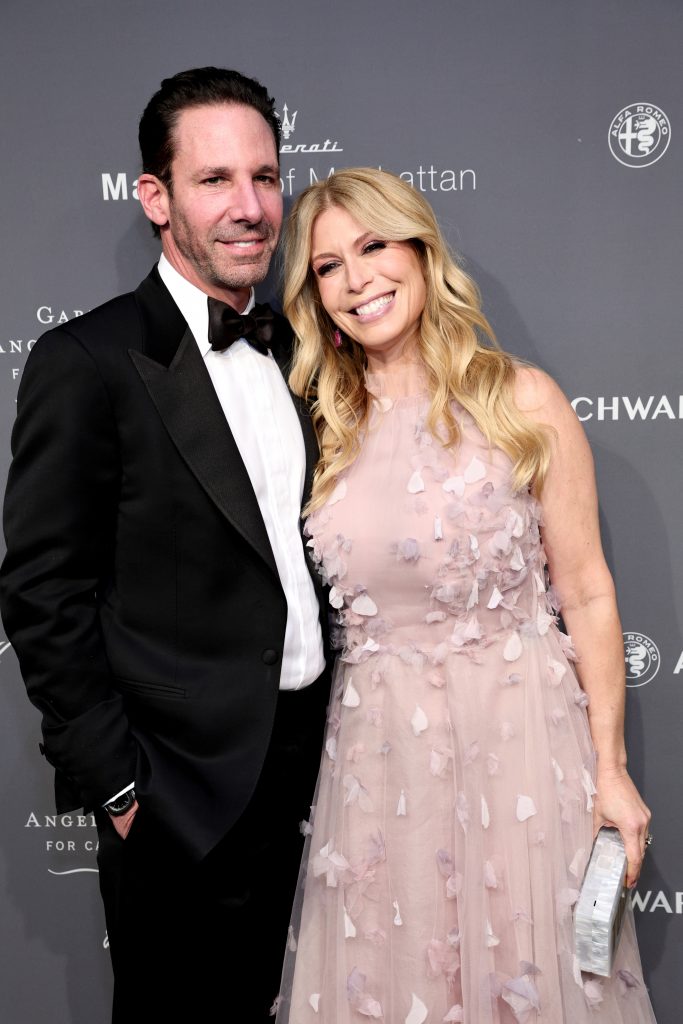Cancer Can Bring Change — And That's Okay
- TODAY contributor Jill Martin, 48, who announced her breast cancer diagnosis last July, is parting ways from her husband Erik Brooks after marrying in September of 2022, not even a year after her diagnosis, which has undoubtedly been tough to navigate for both on multiple levels.
- Martin, who was live on the air today doing business as usual, has yet to comment officially about her marital status, but the NBC personality has been giving updates to fans of the understandably emotional fallout from this disease.
- Sometimes people assume that if you’re married and you’re going through cancer, you at least have someone there to get through the tough times with. That’s not always the case, ovarian cancer survivor Amanda Crowell Itliong previously told SurvivorNet. Unfortunately, divorces during cancer do happen — but it’s not always a bad thing, the Detroit native said.
- It is important for cancer survivors to have a strong support system during and after cancer. Sometimes especially after cancer, when even more intense emotions can set in unexpectedly after the physical and emotional journey a patient has gone through.
A source first told Page Six and PEOPLE that the pair is “quietly divorcing” and multiple news outlets have confirmed the difficult news.
Read MoreWearing a big smile in her behind the scenes clip today, we have faith that her resilience will carry her through, and she will be just fine.

Jill Martin’s Breast Cancer Diagnosis
In a personal essay for Today.com, Martin said she learned of her diagnosis on June 26 at 3:30 p.m. a moment when she recounted telling herself, “My life is never going to be the same.”
“I had always feared this day would come, but I never really thought it would. Just three weeks before, in between work calls, I had taken an at-home saliva test by a genetic testing company [testing for a breast cancer gene mutation] and mailed it in. Honestly, I had forgotten I even did it,” she wrote.
Speaking to PEOPLE about her unexpected diagnosis, Martin said, “I am in shock, but at the same time I’m so grateful because it could be a very different story that we’re talking about. Of course I’m devastated. You hear the C-word and you think the worst. But after you hear the word and you absorb it, you then have to be your own best friend.

“And also having the platform to share my story has given me strength, because I feel like while I’m healing, I will be able to help literally save lives. And if I save one life from this, then this process will have been worth it for me.”
The diagnosis was particularly shocking, since she had been screened for the breast cancer just six months ago.
“I had a mammogram in January and it was perfect!” she told the news outlet.
View this post on Instagram
Martin explained further in her essay how she’s talking about her diagnosis to raise awareness, “so that maybe you can be tested and identify a BRCA or other genetic mutation earlier.”
She continued, “If I had known I was BRCA positive, I would have gotten screened more regularly, with an MRI alternating with my mammograms. What I didn’t know before this experience was that an MRI can pick up cancers that mammograms miss.
“So while my mammograms missed the presence of breast cancer, an MRI might have helped me catch it earlier. Earlier testing also might have led me to the opportunity to have preventative surgery which is something I had planned to do only days before I found out that I actually had cancer.”
Divorce During Cancer
Sometimes people assume that if you’re married and you’re going through cancer, you at least have someone there to get through the tough times with. That’s not always the case, ovarian cancer survivor Amanda Crowell Itliong previously told SurvivorNet. Unfortunately, divorces during cancer do happen — but it’s not always a bad thing, the Detroit native said.
“Women do sometimes get divorces during this time,” she said. “It happened to me and I thought it was the worst thing that could ever happen — and it wasn’t. It wasn’t even a little bit the worst thing that could ever happen. It turned out pretty great in the end. Sometimes, things like cancer can show you that a relationship isn’t the right relationship.”
During the time of her interview, Amanda had been facing ovarian cancer for five years. Like many women who have the disease, she’s had to deal with several recurrences. She explained that after her first diagnosis, her husband at the time wasn’t really there for her — and could not really handle the stress in a helpful way. She wants other women to know that even if you experience relationship issues, or even the end of a relationship, because of cancer — it’s possible to move on.
Navigating relationships during cancer — A survivor’s guide
“I was able to find happiness and good sex, passion and everything, with somebody else after all of that was over,” Amanda said. “Sometimes I think it has to do with believing it’s going to be OK, and figuring out how to work something out. If we get used to what works and what doesn’t with our bodies, we can get creative and come up with a lot of good solutions that mean you can still have a really positive sex life. It might just not look like it did before.”
Remember, when going through a challenging chapter with your significant other, it’s necessary to truly understand the diagnosis so that you can help navigate the physical and emotional symptoms that come along with it, and there are a lot.
Dr. Jayanthi Lea, a gynecologic oncologist at UT Southwestern Medical Center, previously told SurvivorNet, “I encourage caregivers to come into visits with my patients because, in that way, the caregiver is also listening to the recommendations what should be done in between these visits, any changes in treatment plans, any toxicities [side effects] that we need to look out for, changes in dietary habits, exercise, etc.”
Mental Health: The Importance of Support for Cancer Survivor
It is important for cancer survivors to have a strong support system during and after cancer. Sometimes especially after cancer, when even more intense emotions can set in unexpectedly after the physical and emotional journey a patient has gone through.
Dr. Shelley Tworoger, a researcher at Moffitt Cancer Center told SurvivorNet that “there’s a number of common things cancer patients can experience, such as anxiety, depression, financial toxicity, social isolation and sometimes even PTSD.”
Helping to ease some of those feelings is a great way to support your loved one.
The importance of self-care and the things that bring you joy
Licensed clinical psychologist Dr. Marianna Strongin says having people by your side during this “arduous chapter” in your life can be very beneficial.
“Studies have found consistently that loneliness is a significant risk factor for physical and mental illnesses and the trajectory of recovery,” Strongin said. “Therefore, it will be important that you surround yourself with individuals who care and support you throughout.”
Learn more about SurvivorNet's rigorous medical review process.

